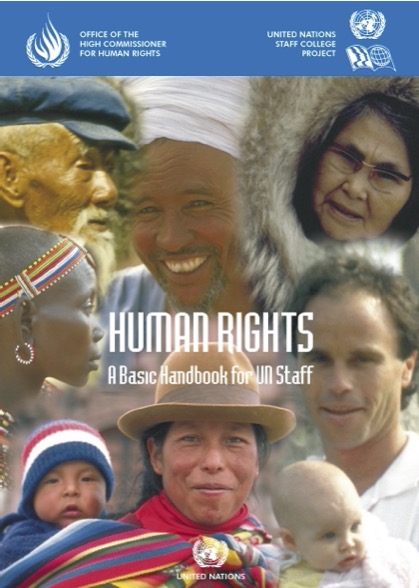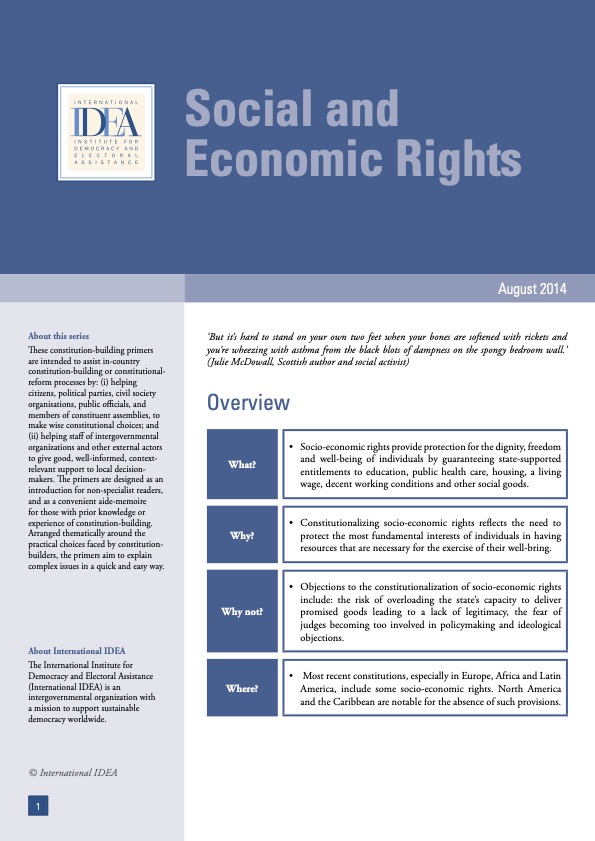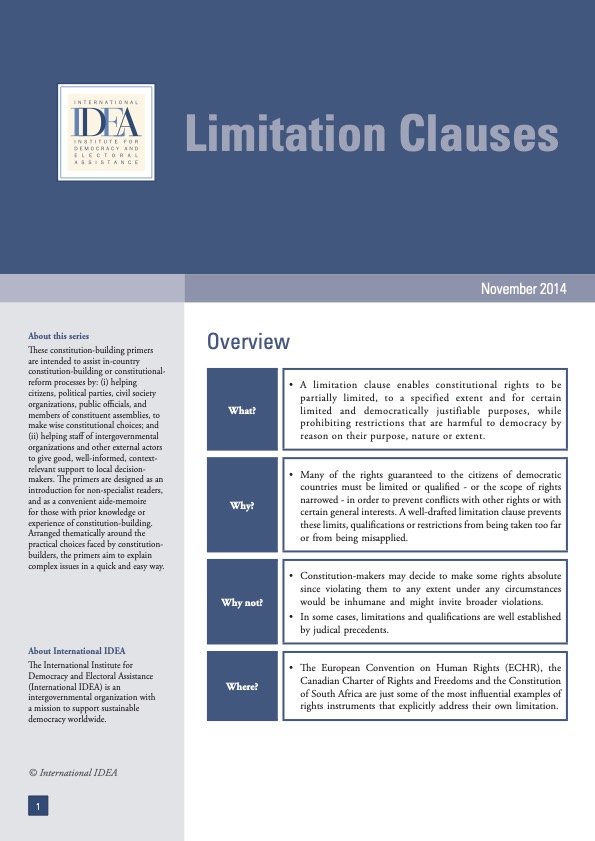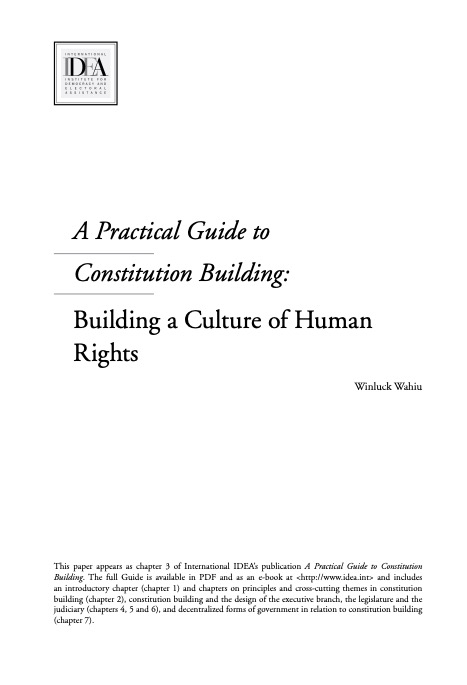The reports on this page provide guidance on social and economic rights typically found in constitutions as well as possible limitations and derogations to fundamental rights found in constitutional provisions.
Selected Materials

This OHCHR handbook provides a basic introduction to international human rights. It is intended to assist those working outside the human rights secretariat in understanding the concept of human rights, the obligations of the OHCHR to promote and protect human rights, and how the UN discharges this obligation. The handbook provides overviews of international human rights standards and their development, UN organs, human rights mechanisms, UN strategies and action to promote human rigths, and OHCHR and partner activities.

This report provides a compilation of extracts from opinions on issues relating to Social and Economic Rights from the Council of Europe’s Commission for Democracy Through Law (Venice Commission).

This publication presents good practices for the advancement of gender equality in constitutional provisions through the articulation of women’s political, civil, economic, social and cultural rights.

This primer discusses the origin and spread of socio-economic rights, articulates reasons for and against including them in a constitution and considers the design options and contextual factors that constitution-makers must address when dealing with this issue. It seeks to guide constitution-makers through a range of constitutional choices, including: (1) Whether socio-economic rights should be incorporated into a constitution? (2) What form their incorporation should take, i.e. as justiciable rights or directive provisions? (3) What other design features of a constitution would complement the promotion of these rights?

This primer explores the use of limatations clauses in constitutions, including their purpose, options for formulation, and considerations in their design and use.

This paper appears as chapter 3 of International IDEA’s publication A Practical Guide to Constitution Building. This paper focuses on the development of a human rights culture, defined as a culture in which society values human rights to the extent that most, if not all, official decisions aim to maximize these rights. The paper discusses how this culture is shaped by the constitution-building stage, by type of process used to frame the constitution, and the nature or type of the constitution. Next, the paper addresses building a human rights culture in a conflict affected state. Specifically, the paper looks at: (a) the need to deal with past gross violations, (b) the general system of power distribution, (c) legal versus political visions of the constitution, and (d) domestic legal norms versus international human rights law. The paper looks at human rights in democratic states, and then takes a closer look at the human rights options within constitutions. The two issues identified in the report as relevant to constitution building across diverse contexts are: (a) the distinction between citizens’ rights and human rights, and (b) the distinction between basic or fundamental rights and rights in general. Because human rights are only as effective as the mechanisms that enforce them, the paper discusses those matters that most influence the enforcement of human rights norms.

